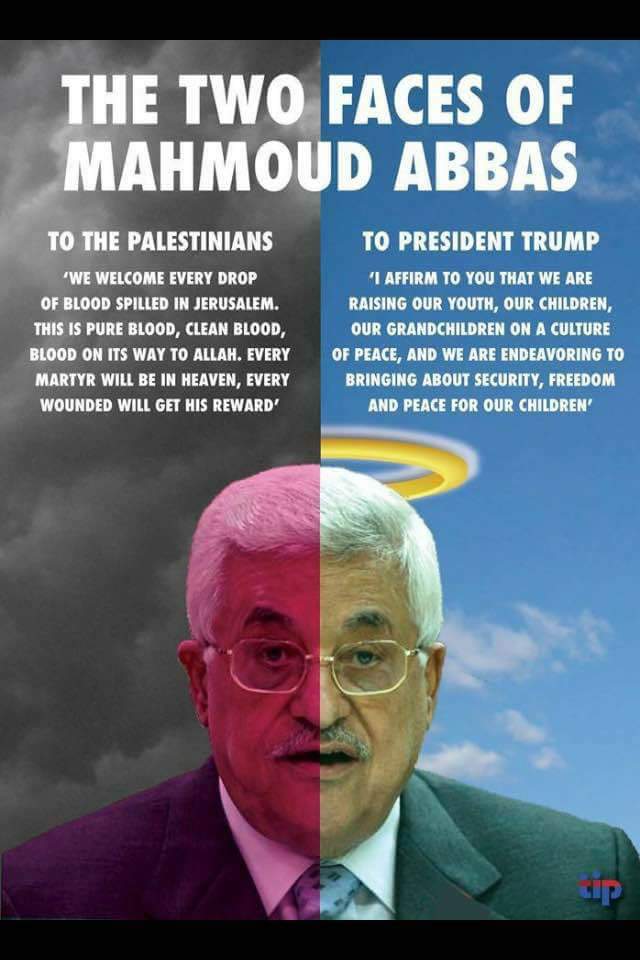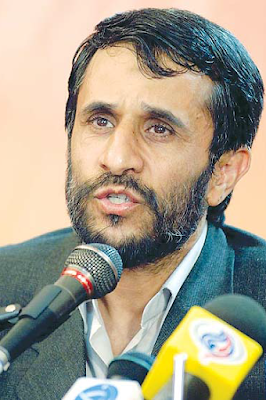Trump threatens to cut off US aid to Palestinians over Jerusalem dispute
Acknowledging his push to broker peace in the Middle East has stalled, US President Donald Trump on Tuesday threatened to cut off aid to the Palestinian Authority, asking why Washington should make “any of these massive future payments” when the Palestinians were “no longer willing to talk peace.”
In a tweet, the president dismissed Palestinian fury over his recognition of Jerusalem as Israel’s capital, saying he had planned for Israel “to pay” in future negotiations for his declaration. But Palestinian intransigence was now preventing any progress on peace talks, he said
Washington was paying the Palestinian Authority hundreds of millions of dollars a year “for nothing,” he wrote, complaining that the US received “no appreciation or respect” in return.
“They don’t even want to negotiate a long overdue peace treaty with Israel,” he said. “We have taken Jerusalem, the toughest part of the negotiation, off the table, but Israel, for that, would have had to pay more.”
“But with the Palestinians no longer willing to talk peace,” he went on, “why should we make any of these massive future payments to them?”
...peace treaty with Israel. We have taken Jerusalem, the toughest part of the negotiation, off the table, but Israel, for that, would have had to pay more. But with the Palestinians no longer willing to talk peace, why should we make any of these massive future payments to them?
— Donald J. Trump (@realDonaldTrump) January 2, 2018
US warns it won’t fund UN refugee agency if Palestinians reject talks
Speaking with reporters Tuesday at UN headquarters, US Ambassador to the UN Nikki Haley stressed the US remains committed to reaching a peace deal, and indicated it would cut off aid if the Palestinians refused to engage in peace negotiations.EXCLUSIVE - U.N. Palestinian 'Refugee' Agency Defends Budget After Census Finds Nearly A Third Less ‘Refugees’
Responding to a reporter’s question on whether the US will continue to provide funding for the UN Relief and Works Agency, which provides aid to millions of Palestinian refugees, in light of a non-binding UN General Assembly resolution last month condemning the US recognition of Jerusalem as Israel’s capital, Haley said Trump was prepared to cut aid to UNRWA if the Palestinians refuse to return to peace talks.
“I think the president has basically said that he doesn’t want to give any additional funding until the Palestinians are agreeing to come back to the negotiation table,” Haley said. “We’re trying to move for a peace process but if that doesn’t happen the president is not going to continue to fund that situation.”
“The Palestinians now have to show their will — they want to come to the table. As of now they are not coming to the table but they ask for aid. We’re not giving the aid,” added Haley. “We’re going to make sure they come to the table and we want to move forward with the peace process.”
The US was the biggest donor to UNRWA in 2016, giving $368,429,712. It is also the largest overall supplier of financial support for the Palestinians.
I24 News added the census was “conducted by 1,000 Lebanese and Palestinian employees and was taken over the course of a year.”Trump’s Mideast policy: Diplomatic Darwinism in the quest for the ultimate deal
In his statement, UNRWA’s Gunness said that “UNRWA looks forward to analyzing the survey results in detail and to discuss their policy implications with the Lebanese authorities, the Palestinian community, donor countries and the broader UN family.”
He stressed that the census “does not cover all Palestinian refugees in Lebanon – it covers those in the camps and gatherings.” However, the census was reported as a thorough accounting of most Palestinian “refugees” living in Lebanon.
Gunness added: “UNRWA continues to operate facing a large shortfall in its budget. UNRWA urges all donor countries to provide the funding needed in order to maintain and actually strengthen its capacity to assist and protect Palestine refugees in Lebanon.”
The U.S. is UNRWA’s single largest donor, providing about $300 million annually.
The definition of a Palestinian “refugee” and the actual numbers have long been the subject of debate.
US President Donald Trump’s bombshell tweets late on Tuesday demonstrated once again just how unpredictable the leader of the free world is.
In under 100 words, he questioned America’s longstanding financial support for the Palestinian Authority, contradicted his own position on Jerusalem, and indicated that Israel would have to “pay” in future peace negotiations.
With a president as impulsive as Trump, nothing is impossible. Tomorrow he really could, as he threatened on Twitter, announce that the US will cease funding the PA or demand painful concessions from Israel, or declare he is abandoning his pet peace project altogether.
At this point it appears more likely, however, that US officials will somehow try to downplay the president’s surprising tweets, indicating support for the status quo and vowing that the White House will continue unabated in its efforts to bring about a lasting peace.
Still, Trump’s tweets do provide fascinating insights into how he views international relations and the application of his “America First” foreign policy in the Middle East. It’s all quid pro quo, a system of bilateral transactions in which the strongest player dominates weaker ones. Call it diplomatic Darwinism.






































